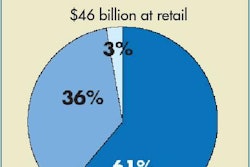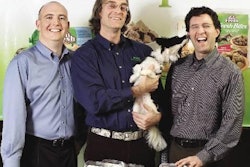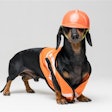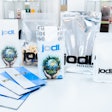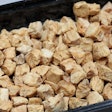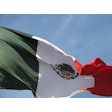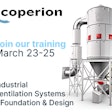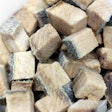.png?auto=format%2Ccompress&q=70&w=400)
Since the 2007 melamine contamination scandal, Chinese regulators have upped their oversight, run a four-month-long food industry inspection sweep that covered petfood makers and signed a new export agreement with the US that requires Chinese petfood makers to register with the government.
In early 2007, two Chinese suppliers exported toxic material to petfood suppliers in the US, killing more than 300 dogs and cats.
The incident spurred a four-month food industry cleanup in China starting in August and including all petfood manufacturers and exporters. The sweep was initiated by Wu Yi, vice premier of the state council, and involved the General Administration of Quality Supervision, Inspection and Quarantine (AQSIQ) and all its local officials.
"With the inspection, all government approved products now will have to carry a quality mark," said Li Changjiang, minister with AQSIQ. "We will also present a transparent food quality situation to the international society by issuing a Chinese white book every year." The first white book, released last August, also covers the petfood industry in China.
New inspections
He Zhongyun, head of Beijing-based China Pet and Pet's Development Service Center, told Petfood Industry that there are no specific regulations governing petfood in China, as the market is still very small.
"Most Chinese petfood manufacturers faced no quality checks within the country, as none of their products are sold on the local market," He said.
However, on December 11, the governments of China and the US signed memorandums for the promotion of export and import in eight business areas, including petfood. Now Chinese food and material suppliers, including petfood makers and suppliers, will have to register with the local government, and the data will be shared with the US Department of Health and Human Services.
"The products go through quality inspection twice," said Lin Xuanchun, head of production with Xuzhou WeiLong Food Co. Ltd., a petfood maker located in Jiangsu province. "The Chinese government conducts an inspection prior to shipping, and the US Food and Drug Administration (FDA) conducts the second one at arrival."
WeiLong produces dry foods for dogs and cats and ships about 19 tons to the US every month, Lin said, adding that all of Weilong's products follow a strict quality control process and have a 100% pass rate with inspections.
According to He, since the 2007 incidents a strong quality control sense has gripped the management of 166 registered Chinese petfood exporters.
Supplier evaluations
Michael Wang, export manager with Shanghai Bestro Enterprises Inc., a privately owned petfood manufacturer, said the company has its own evaluation system to supervise the suppliers. Bestro makes chews and pet snacks that are exported to the US and Europe, with annual sales of about US$20 million, according to Wang.
"We have many suppliers and the evaluation system helps us keep the good ones," he said. "All suppliers are required to send us a copy of upgraded licenses, including the business license and the food sanitation license." The company also does sampling inspection at its laboratory and sends a lot of material for testing to the US.
"After the incident last March, it takes longer for the FDA inspection, but no matter how strict the process is, our pass rate is 100%," Wang added.
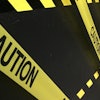
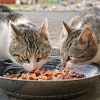

.png?auto=format%2Ccompress&fit=crop&h=167&q=70&w=250)
